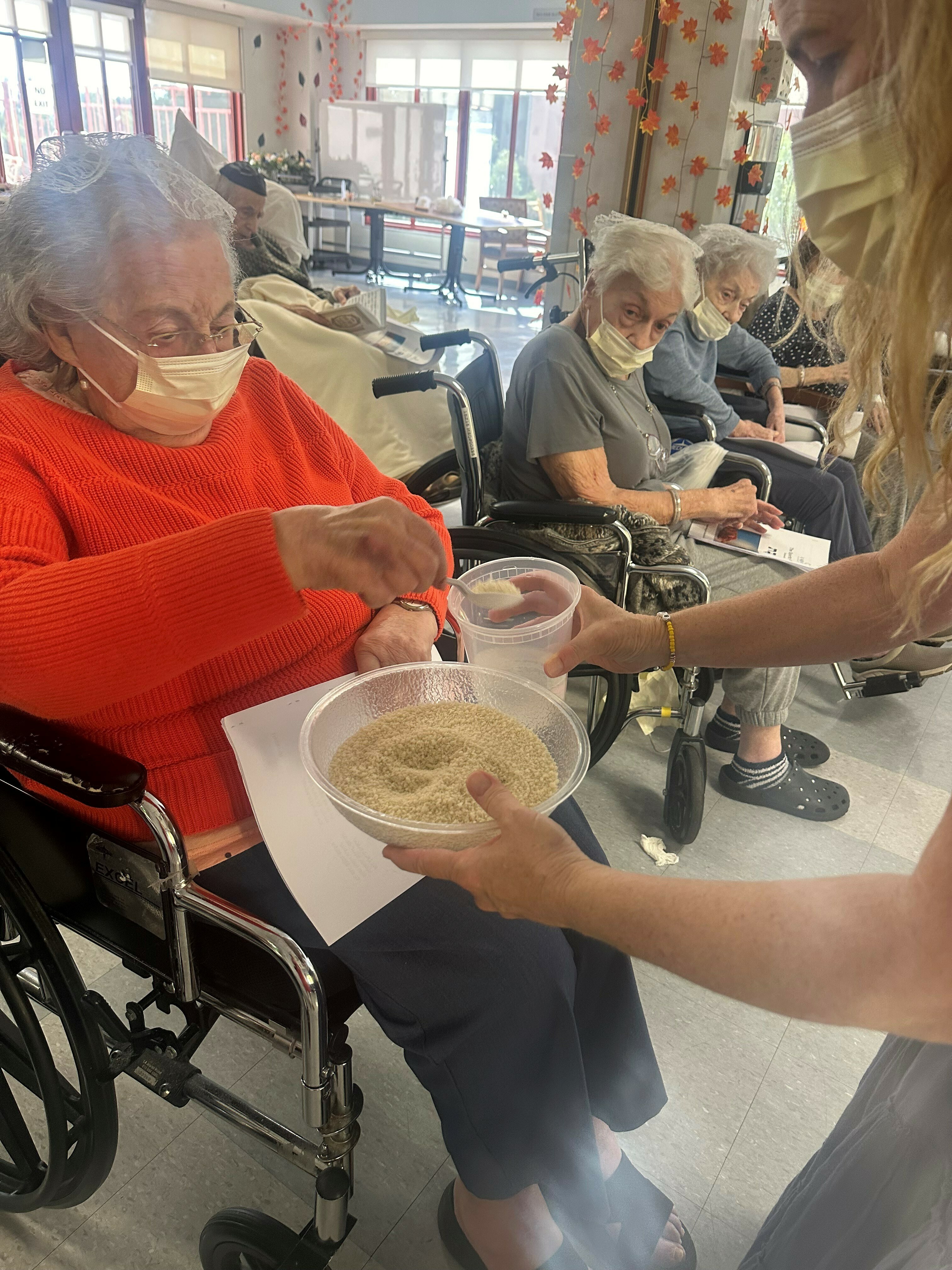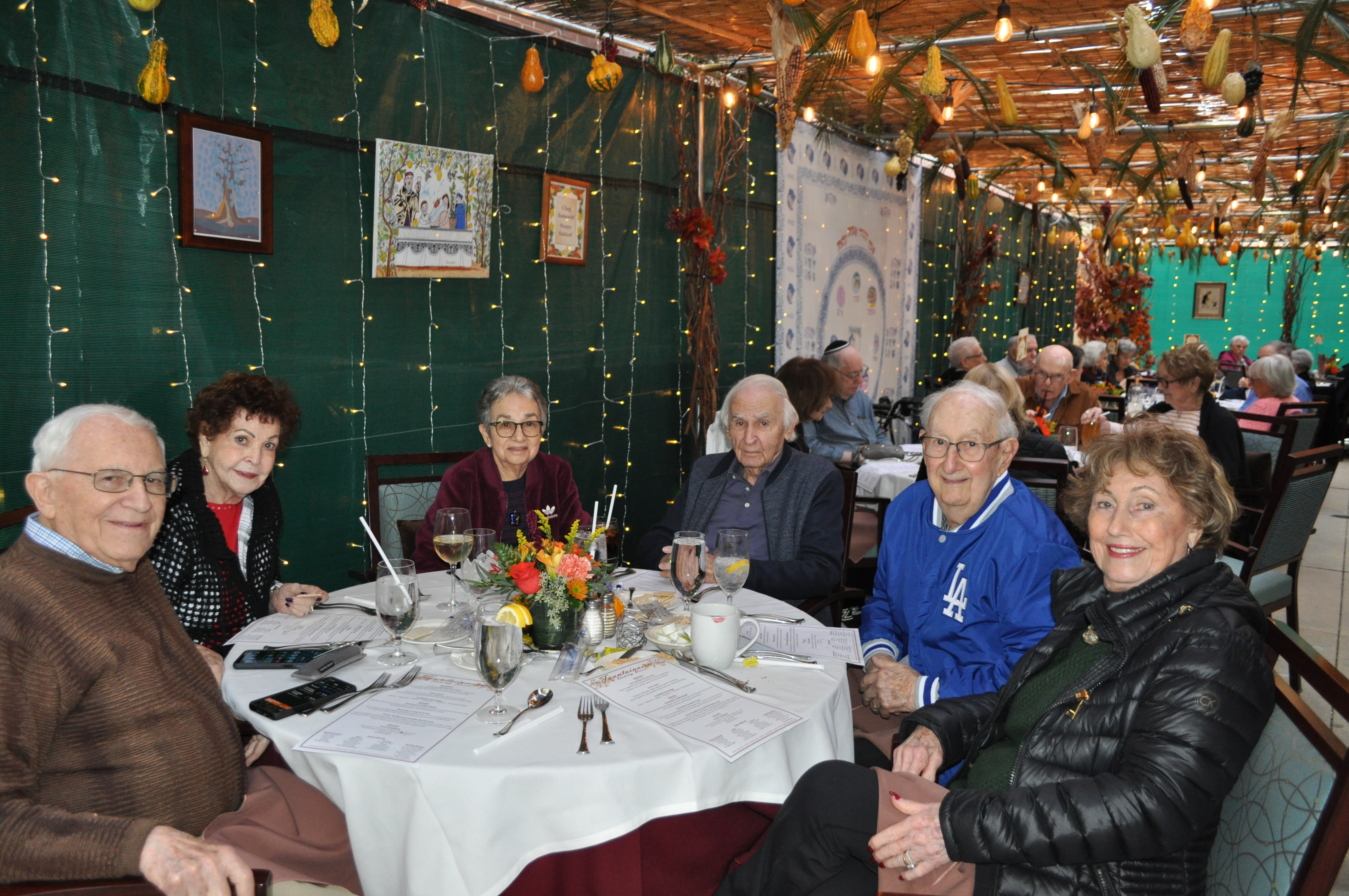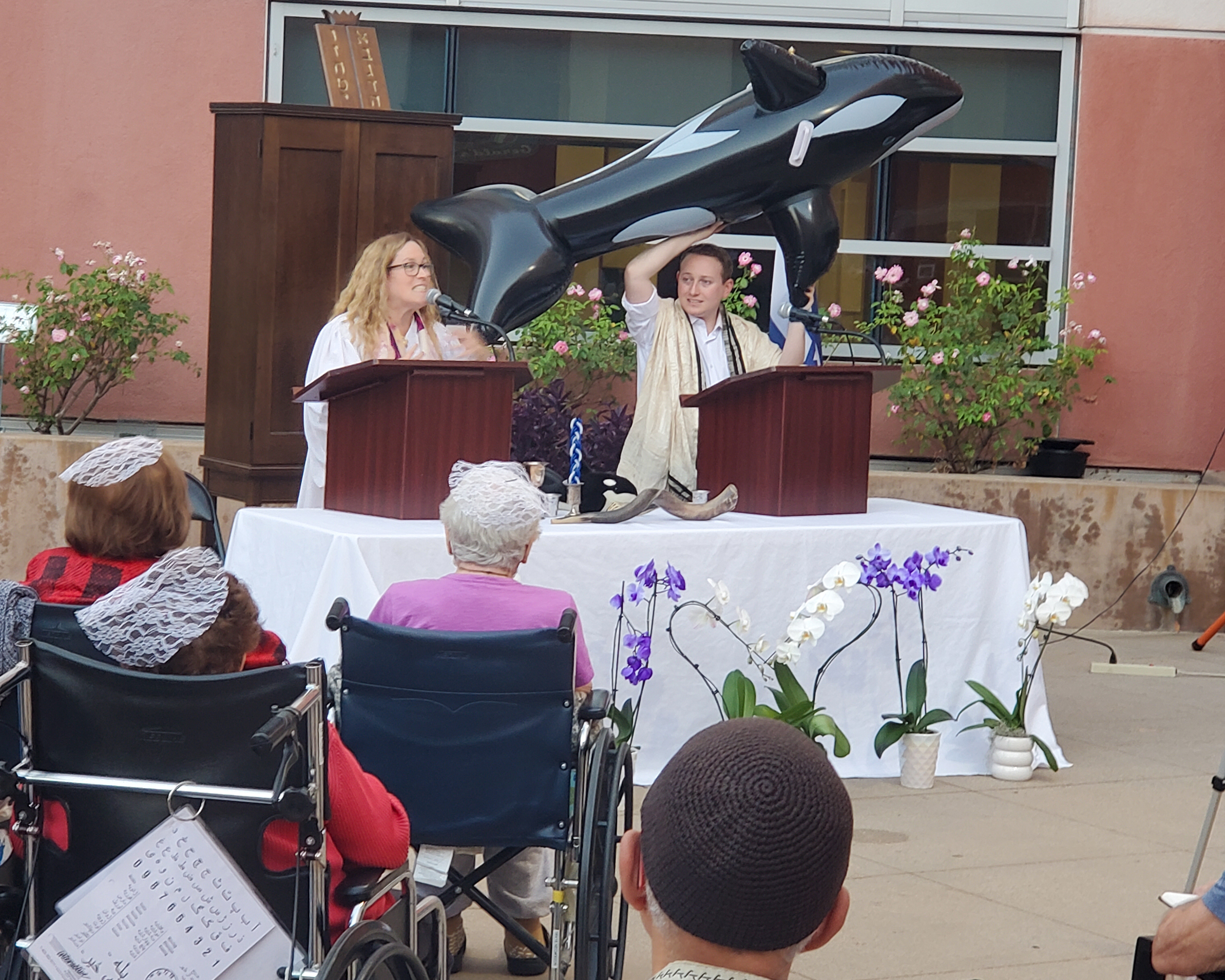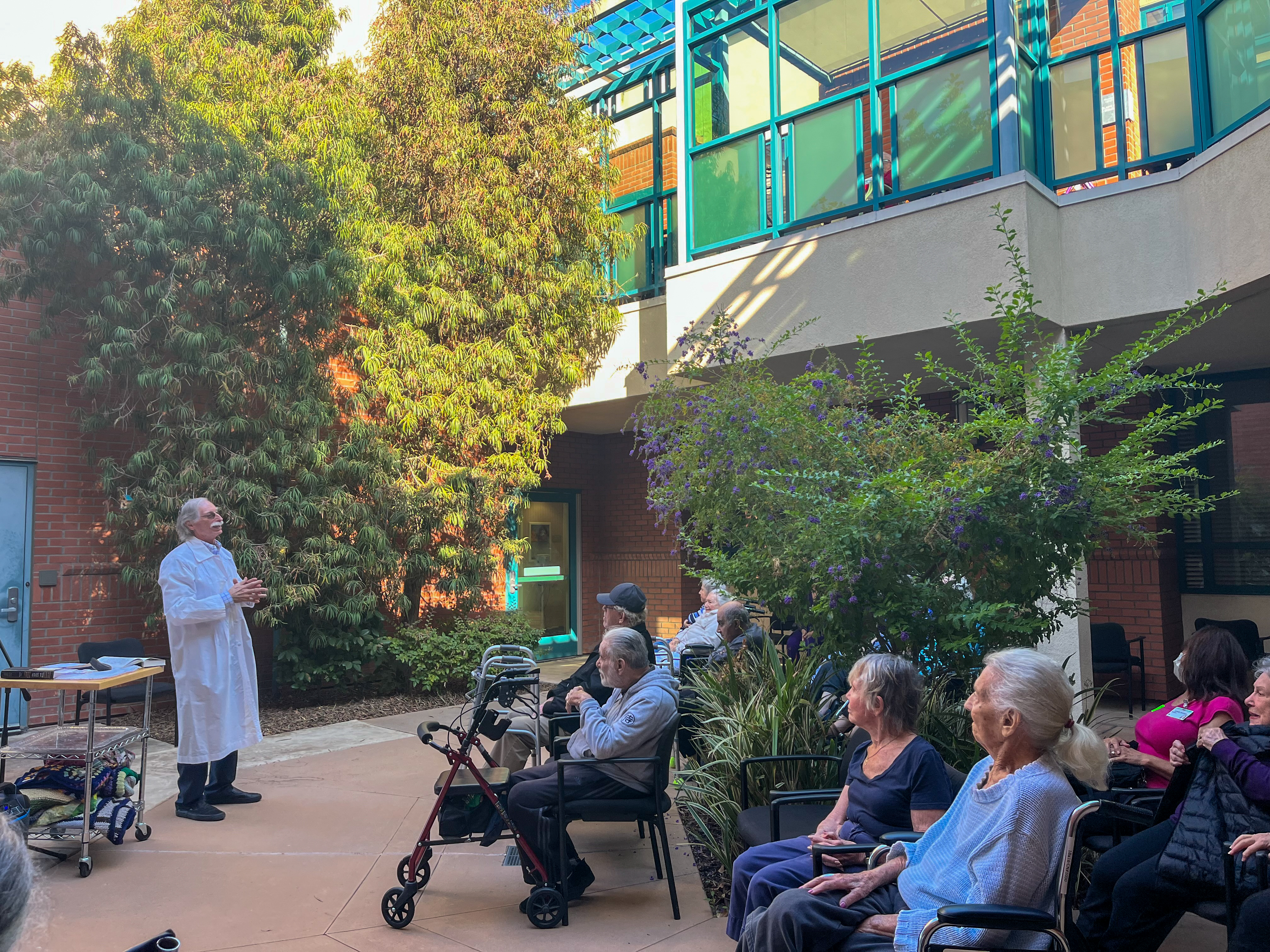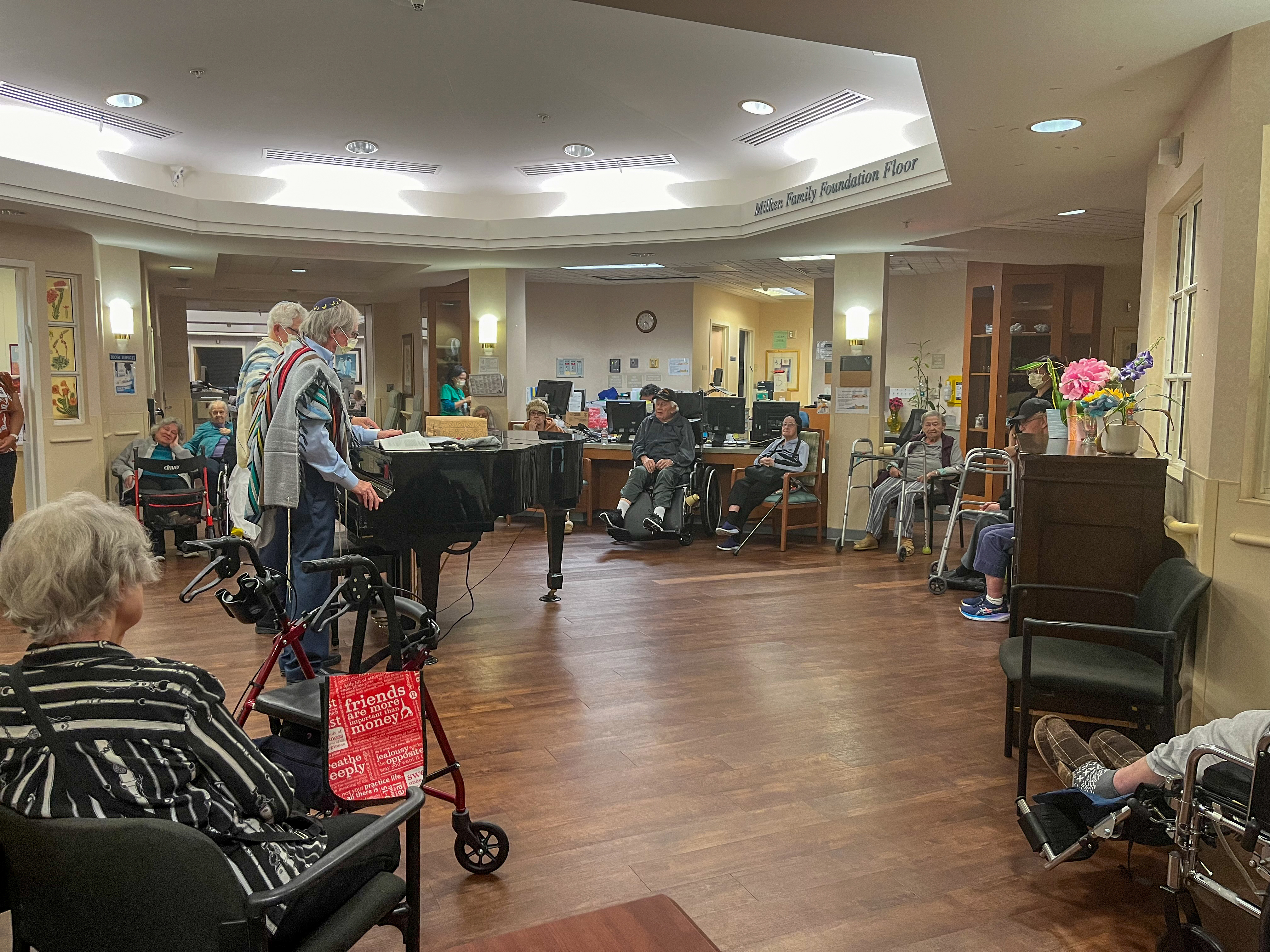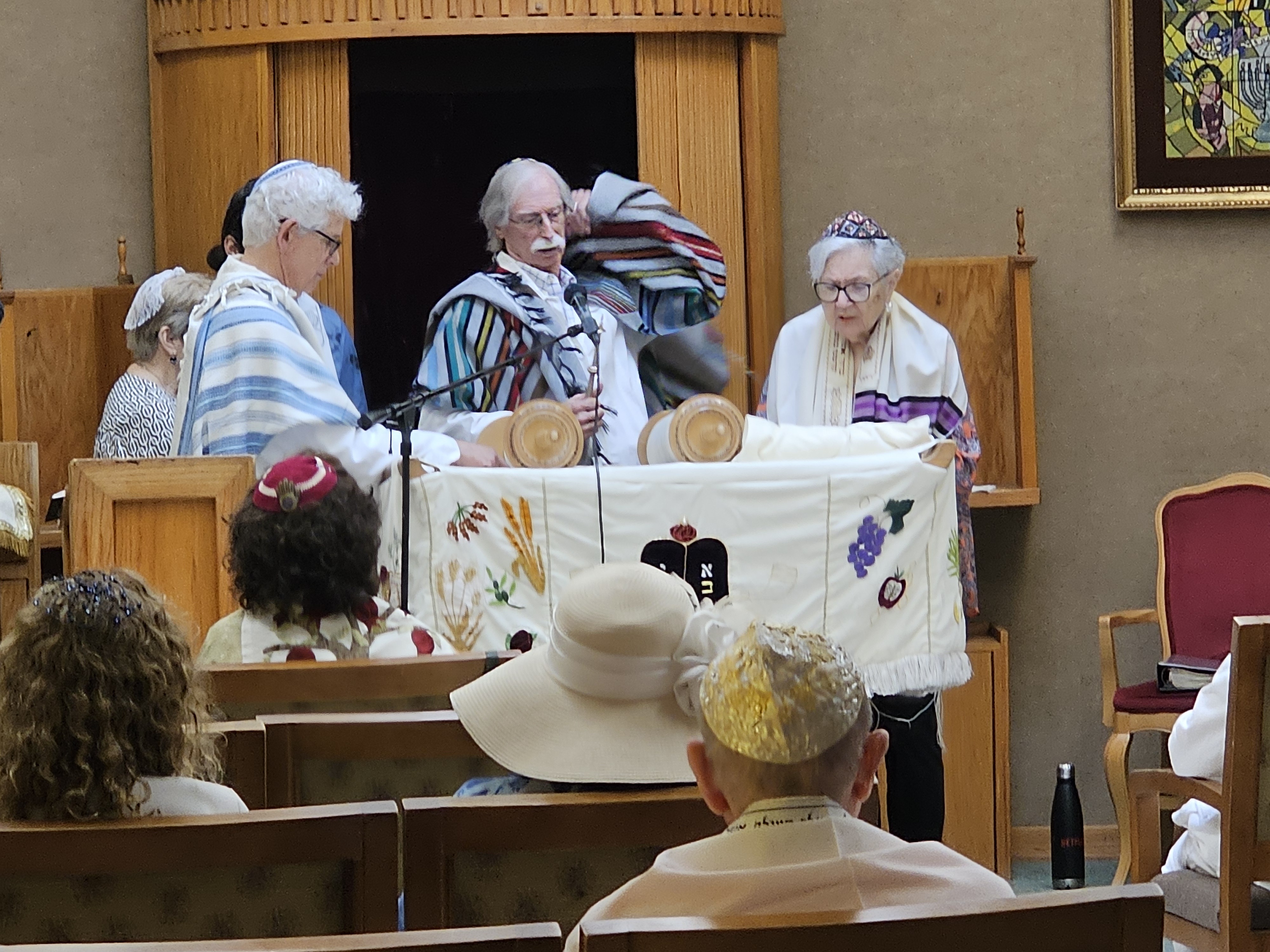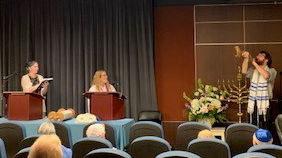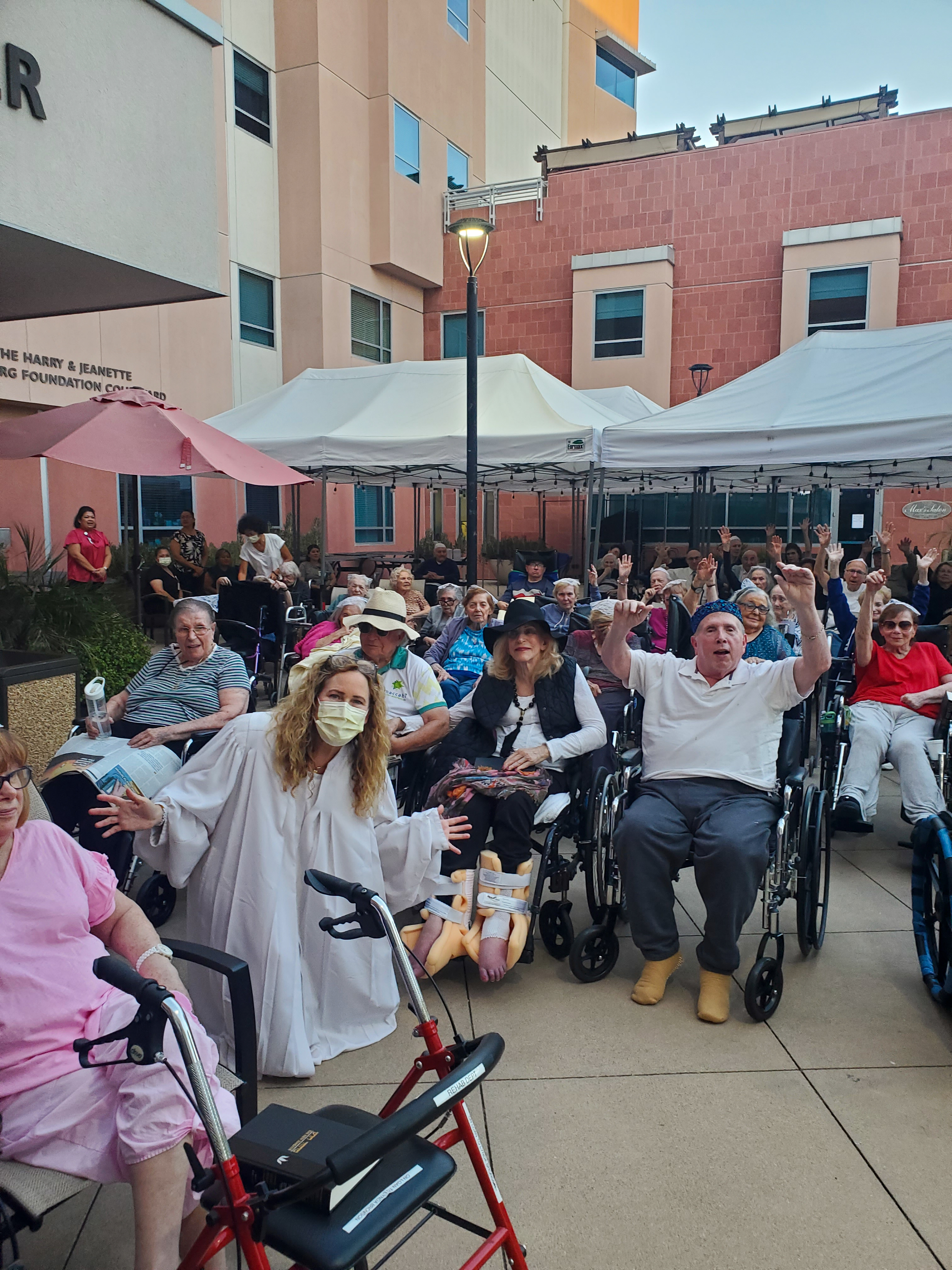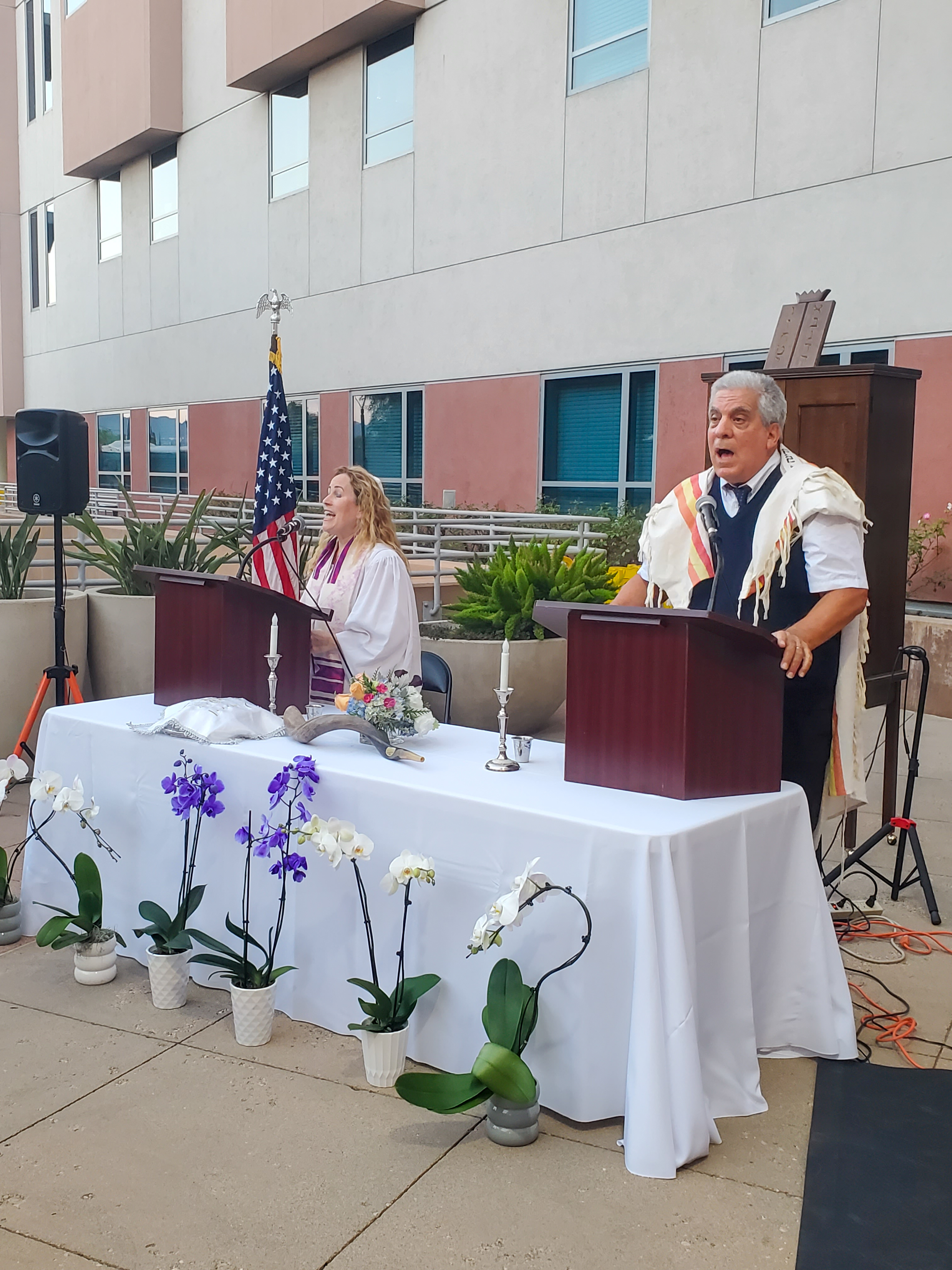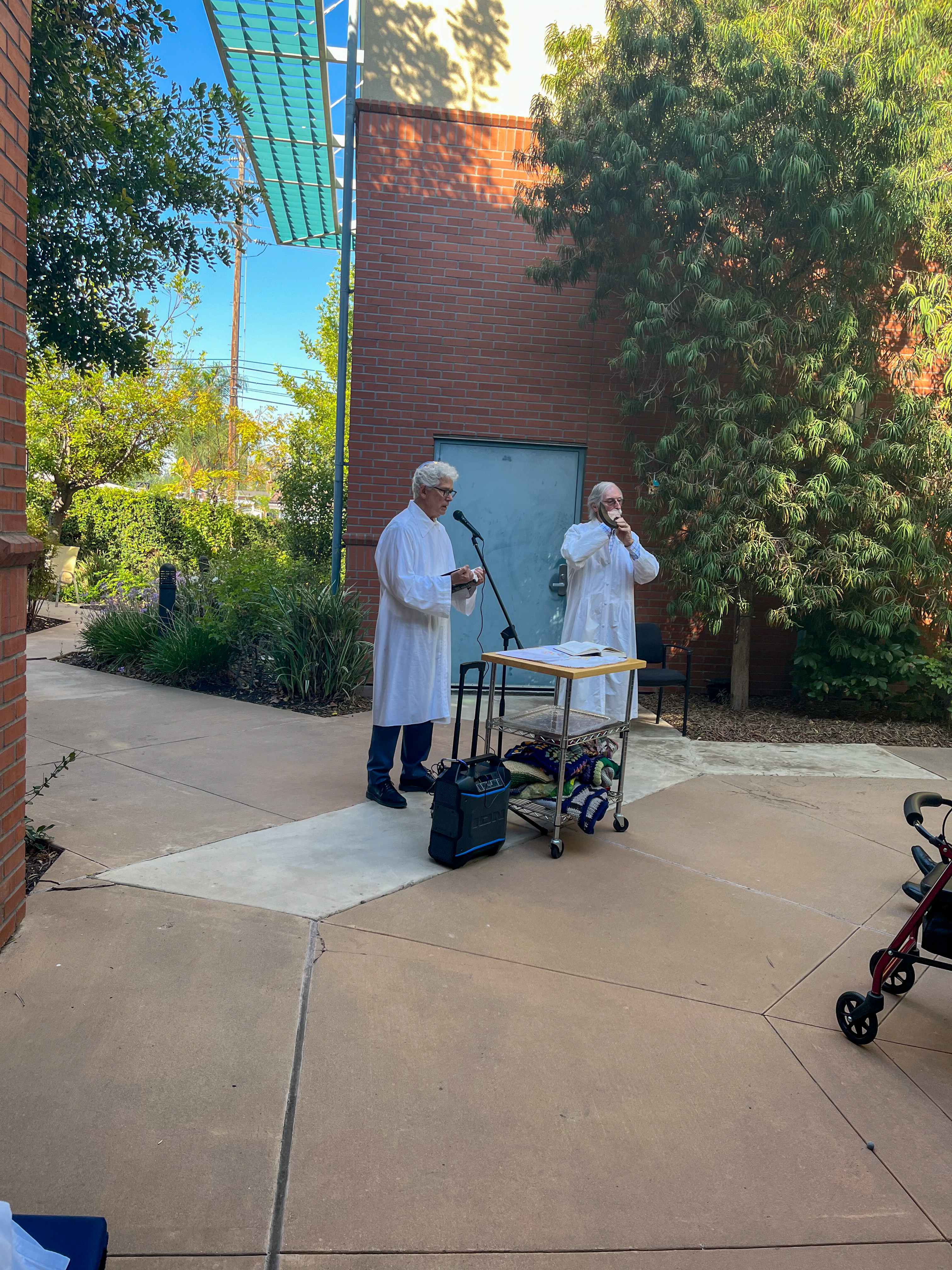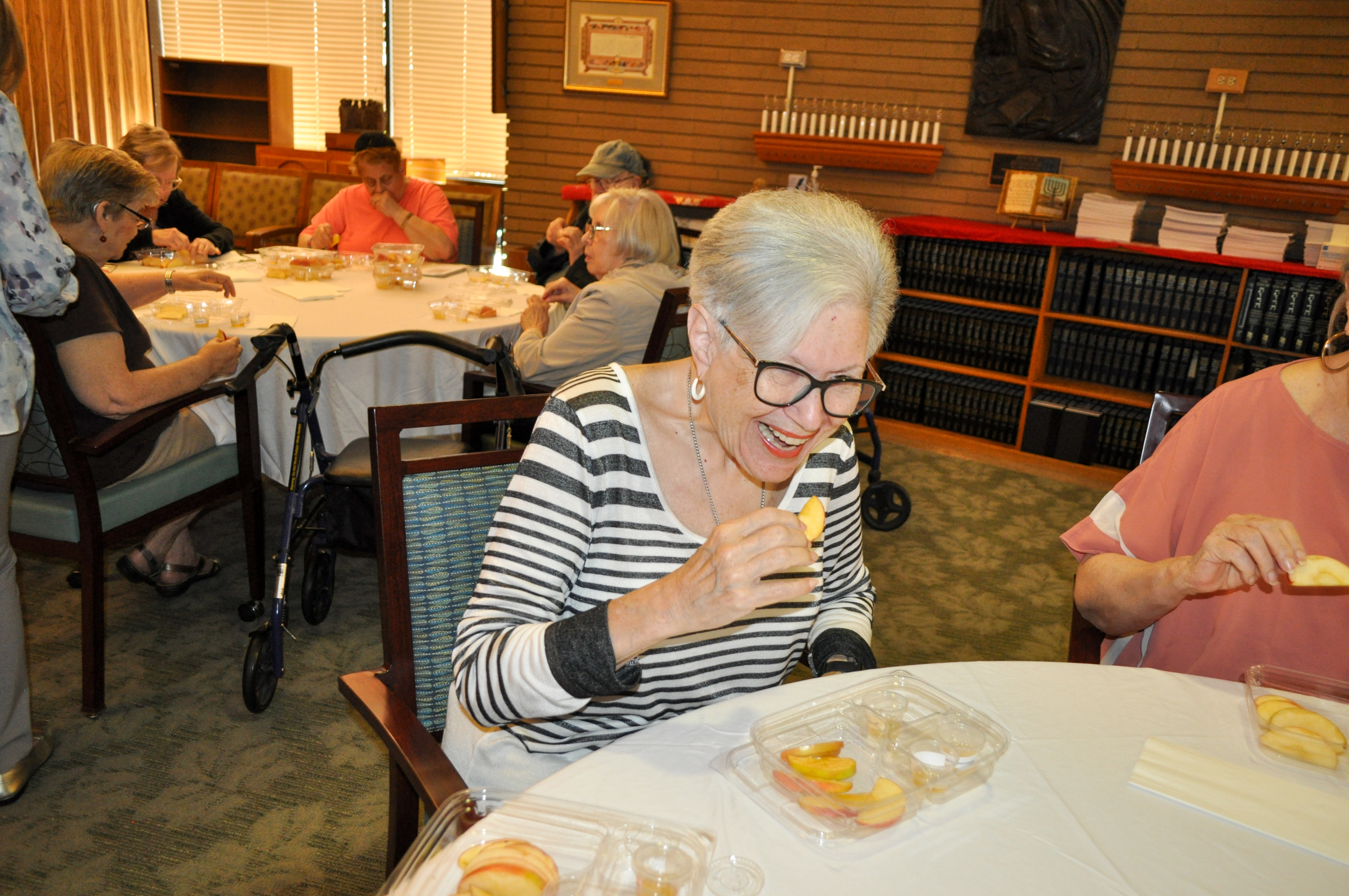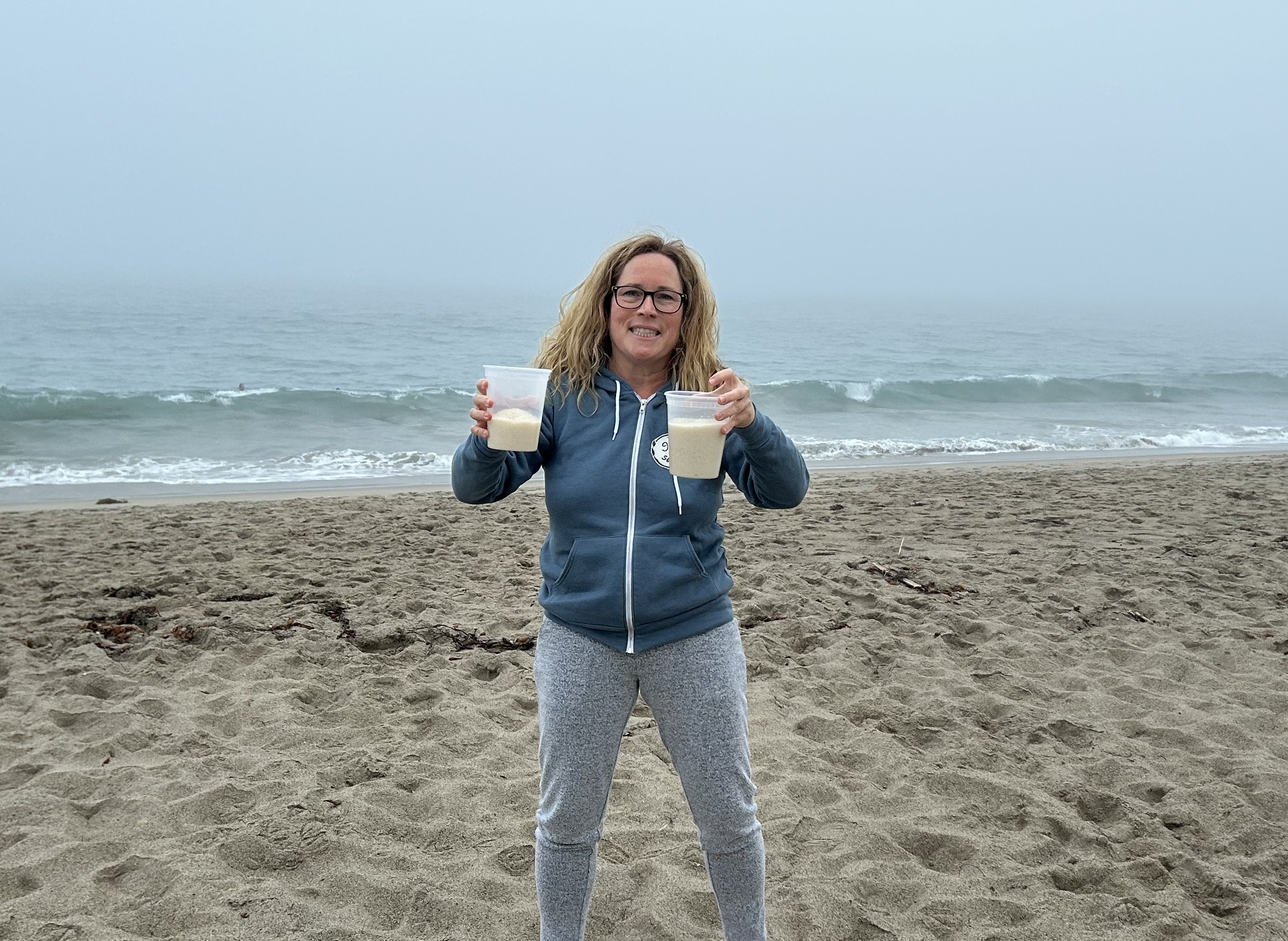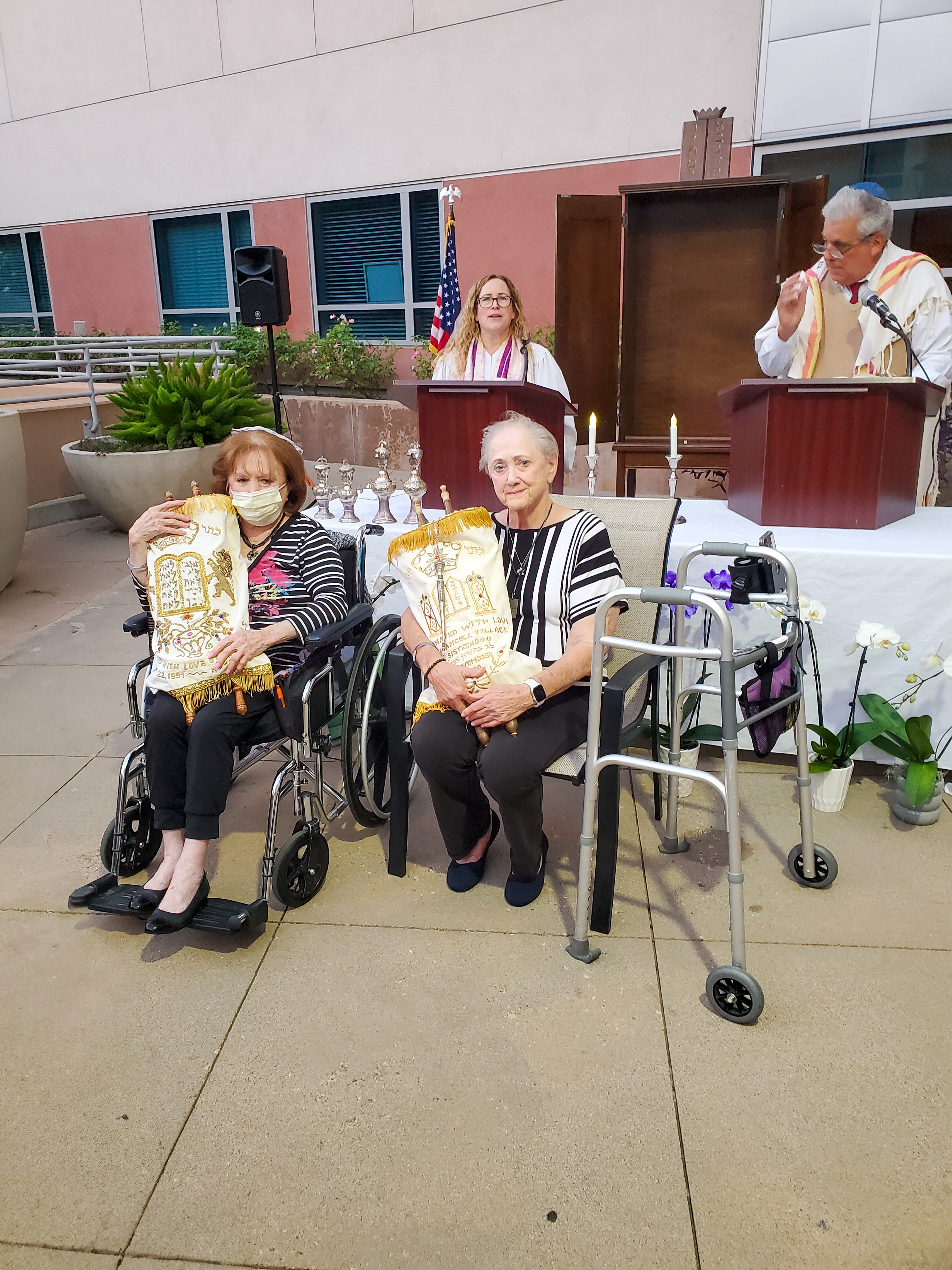A Sweet Start to a New Year at Los Angeles Jewish Health


A Sweet Start to a New Year at Los Angeles Jewish Health
Every year, Rosh Hashanah and Yom Kippur—the holiest days on the Jewish calendar—present Los Angeles Jewish Health residents with multiple opportunities for both celebration and reflection. This year’s holiday events were as wonderful as ever, marked by beautiful music, meaningful prayer, and cherished traditions.
Led by Chief Mission Officer Rabbi Karen Bender, as well as Rabbi Ron Goldberg, the spiritual leader for the Eisenberg Village campus, LA Jewish Health’s holiday observances offered something for everyone of the Jewish faith. There were multiple religious services held across both residential campuses. In the main courtyard at Grancell Village, Rabbi Bender—assisted by her son, Holden—was joined by cantorial soloist Benzy Kogen. Services at the Goldenberg Ziman Special Care Center, officiated by Rabbi Ron, included cantorial soloist Joel Stern. At Fountainview at Eisenberg Village, Rabbi Bender and cantorial soloist Aria Gittelson led residents in the holiday liturgy.
The Fountainview service had some particularly special and unexpected moments. Professional musician David Clymer, the grandson of resident Audrey Stein, was on hand to blow the shofar. He filled the room with gorgeous, powerful shofar blasts, uplifting the assembled residents. Unfortunately, Audrey was not among those gathered; she was under the weather and resting in her room. Determined to ensure his grandmother was able to hear the shofar during this season of High Holy Days, David, accompanied Rabbi Bender and Aria Gittelson, stood outside Audrey’s room and serenaded her while she stepped outside in the fresh air and lovingly listened from her balcony above.
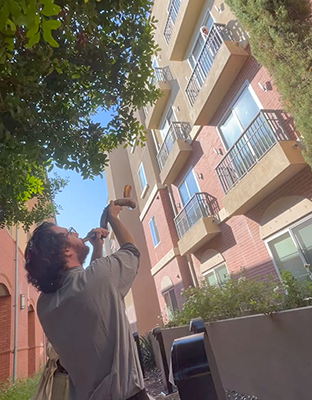
“David was a trumpet player from the time he was little; I think that’s why he’s such a good shofar player,” says Audrey, who was delighted by her private concert. “Hearing him together with Rabbi Bender and Aria was so touching; I was crying the whole time.”
For his part, David—a freelance musician who performs throughout West Los Angeles in addition to arranging and composing music—felt honored to perform for his grandmother and to participate in High Holy Day celebrations at LA Jewish Health.
“My grandmother is such an amazing person. The amount of love she has for people and for travel has meant a lot for me in my life and has taught me to be a good person. It was a joy connecting with her at LA Jewish Health in this way,” he said.
Another signature feature of the High Holy Days at LA Jewish Health this year: eating apples and honey to symbolize hopes for a sweet year ahead. Gathered around holiday tables, residents were able to dip apple slices in several different varieties of honey as they visited with peers and engaged in Jewish learning.
Thanks to the ingenuity of Rabbi Bender, residents were also able to participate in the tradition of tashlich (“casting off”). Typically taking place on the afternoon of Rosh Hashanah, the tradition is one in which people symbolically cast away their sins by tossing bread crumbs into a flowing body of water. While LA Jewish Health residents could not all travel to the Pacific Ocean to perform the ceremony themselves, they carried out a modified exercise utilizing the crumbs and bowls of water. Then, Rabbi Bender collected bread crumbs from them and drove to the beach herself, casting the crumbs into the water on their behalf, in the last afternoon sun.
“At LA Jewish Health, every resident matters, and we will stop at nothing to bring them the joy of the holidays and the joys of life,” Rabbi Bender says.
